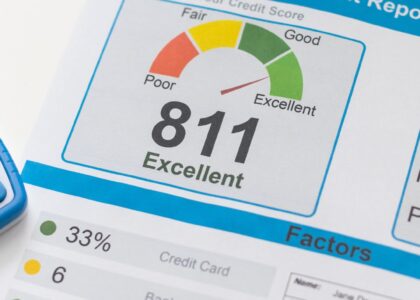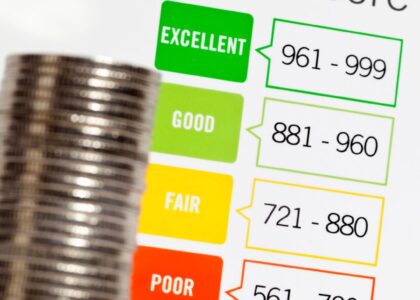Your credit score’s calculation, which involves several factors interacting in intricate ways, might look confusing. But sticking to a simple plan will help you improve and keep your credit score:
- Pay all dues on time.
- Use no more than 30% of your credit line.
- Watch out for anything else.
With this approach, you concentrate your efforts on the two variables that have the most impact on your score: payment history and credit usage (how much of your limits you use). Your credit score is mostly determined by those two factors, therefore paying close attention to them pays dividends.
The remainder, including the sorts of credit you have, how frequently you request for credit, and the loan sums you hold, might be more difficult to change even if they have less of an impact.
Pay all dues on time.
The key to maintaining a high credit score is to pay all of your payments on time each month, not just your credit cards.
The two main credit scoring organizations, FICO and VantageScore, place the greatest emphasis on on-time payments. A payment that is 30 days or more past due might immediately lower your score by up to 100 points. Your lender or credit card company may potentially hit you with a late fee.
Simple strategies can help you make on-time payments and protect your credit score. Establish automated bill payments. Elaina Johannessen, program director at Minnesota charity LSS Financial Counseling, advises setting a reminder to pay if you dislike automated payments or are concerned about overdrawing your account.
You have time to send money to your creditors if you set a reminder several days before your due date.
Use no more than 30% of your credit.
The percentage of your available credit that you’re utilizing is the second-largest factor affecting your credit score. Credit cards are most affected by this.
For each card you have as well as all of your cards together, credit use is important. Don’t utilize more than 30% of any card’s credit limit to keep things easy. The entire credit consumption will also be taken care of by that.
Although 30% is a decent general guideline, your credit score will benefit from reduced spending on each card. Ideally, you should keep it under 10%.
There are various steps you may take to limit your credit use: Spread out a large purchase over several cards if you must make one. Ask to be informed when you are reaching the 30% mark if your card issuers let you establish alerts so you may switch to another card or make a payment. If you can, pay off your balance in tiny amounts during your billing cycle rather than waiting until the due date; this prevents your credit usage from rising to an uncomfortable level.
Watch out for everything else.
The other scoring elements should be considered once you’ve taken care of the two major ones, but you shouldn’t actively manage them. Your score will naturally improve with time and experience using various types of credit.
The following factors also affect your score:
- Types of credit accounts: Combining installment loans and credit cards is a fantastic idea. Simply open additional credit as necessary to achieve your financial objectives, and you’ll gradually build up a mix.
- Average age of your accounts: Having accounts with a long history of responsible use improves your score. Maintain open cards until there is a valid cause to do so, such as a hefty yearly charge.
- Recent credit applications: In order to avoid raising any red flags, try to spread out credit card applications by around six months. The one exception is that if you apply for a mortgage, student loan, or vehicle loan all at once within a two-week period, it is obvious that you are rate-shopping and just one credit check is performed.
- Total balances and debt: Let time take care of this one as long as you’re not accruing too much debt relative to your income. Your score will increase if you have a history of regularly paying down debt.





